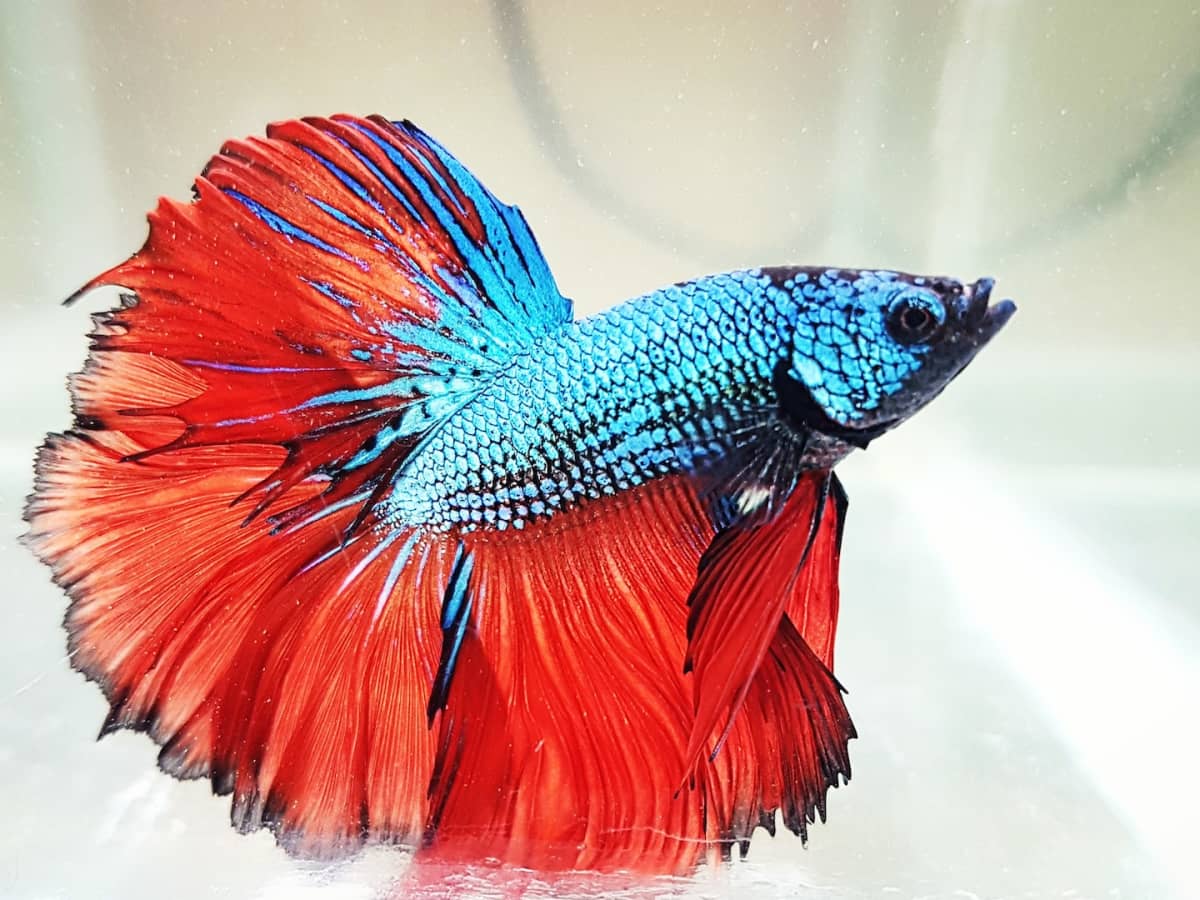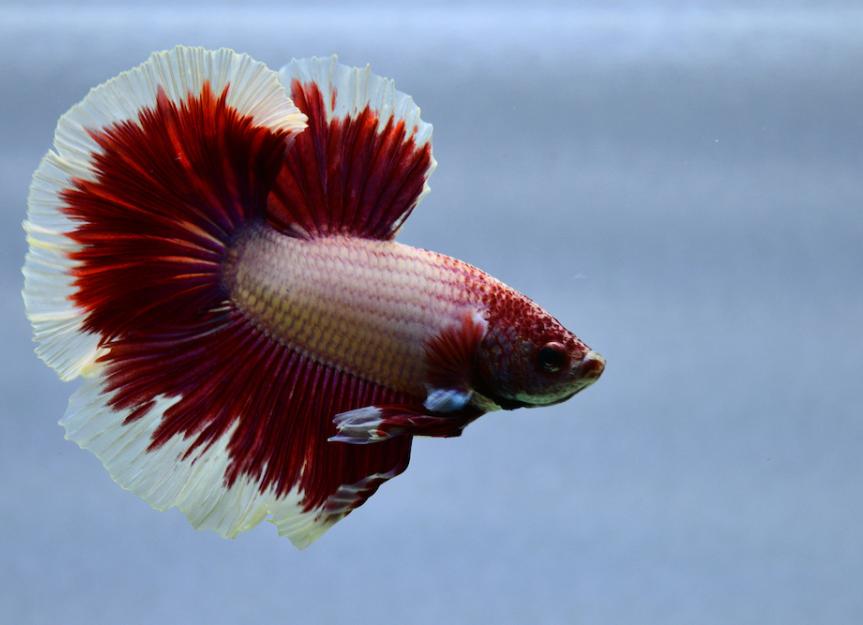Betta Fish Care: Important Tips for a Healthy and Delighted Family Pet
Wiki Article
Everything About Betta Fish: Recognizing Their One-of-a-kind Requirements, Actions, and the very best Practices for Ideal Treatment
Recognizing the special demands and behaviors of Betta fish is essential for any kind of aquarist looking to supply optimum treatment. betta fish. As we explore these elements further, the implications for both amateur and seasoned fish caretakers end up being significantly evident, elevating inquiries about how ideal to suit these exceptional fish in our homes.Betta Fish Introduction
Although typically appreciated for their dynamic shades and flowing fins, Betta fish, clinically referred to as Betta splendens, are complex creatures that need details like grow. Stemming from Southeast Asia, these freshwater fish are recognized for their territorial nature and one-of-a-kind behaviors. Betta fish display sexual dimorphism, with males showing a lot more vivid colors and longer fins than women.Their aggressive tendencies, particularly among men, demand cautious consideration when real estate them. Bettas are usually kept in single-specimen storage tanks to stop territorial disagreements. They can exist side-by-side quietly with certain compatible species in larger community containers, provided the atmosphere meets their needs.

To make sure optimal care, aquarists should recognize their unique behavior qualities, dietary needs, and environment needs. betta fish. With correct interest, Betta fish can show their dynamic individualities and flourish in a well-kept aquarium setup
Natural Environment and Atmosphere
Betta fish thrive in a diverse range of all-natural habitats, mostly discovered in the superficial waters of Southeast Asia, consisting of rice paddies, swamps, and slow-moving streams. These environments are identified by cozy temperatures, normally between 75 ° F and 82 ° F(24 ° C and 28 ° C ), and a pH level varying from 6.5 to 7.5, which is excellent for their health and wellness.
In their all-natural environments, Betta fish are accustomed to thick plants, giving both sanctuary and reproducing grounds. The presence of plants such as floating water lilies and thick lawns not only supplies security from predators yet also adds to the oxygenation of the water, which is important for their respiratory system requirements. Additionally, these settings often have areas of still water, allowing Betta fish to display their all-natural habits such as bubble nesting.
Understanding the natural environment of Betta fish is essential for aquarium enthusiasts. Reproducing these conditions-- with water temperature, pH equilibrium, and the incorporation of online plants-- can substantially improve the total wellness and longevity of these fascinating fish, guaranteeing they flourish in a home fish tank setting.
Social Actions and Interactions
Recognizing the social habits and interactions of Betta fish is crucial for successful fish tank management. Betta fish, or Siamese fighting fish, are known for their distinct behavior attributes, characterized mainly by territoriality and aggressiveness. Men, particularly, display highly hostile habits towards each other, leading to the well-known reputation of Betta fish as competitors. In a constrained space, 2 men can involve in fierce battles, usually causing injury or fatality.Alternatively, female Bettas show much less hostile actions and can exist together in groups, referred to as sororities, if presented appropriately. Nonetheless, it is important to check their communications very closely, as power structure and supremacy can cause problems. Recognizing the dynamics within a Betta area is essential; developing hiding places and guaranteeing ample space can minimize aggressiveness.
Furthermore, Betta fish may additionally display interest and social actions towards other types. While they can exist together with certain non-aggressive container companions, it is vital to pick suitable types to stay clear of stress and aggression. Overall, recognizing these social interactions is key to cultivating an unified aquarium environment for Betta fish.
Necessary Treatment Guidelines
Providing proper take care of Betta fish is critical to their wellness and wellness. To make sure a successful atmosphere, it is important to maintain optimal water conditions. The water temperature level must be kept in between 76 ° F and 82 ° F(24 ° C to 28 ° C), while pH levels ought to range from 6.5 to 7.5. Regular water modifications-- roughly 25% once a week-- help keep water quality.Betta fish call for an ideal storage tank size; a minimum of 5 gallons is recommended to offer sufficient area for swimming and hiding. Include decorations and plants to develop a stimulating atmosphere, but stay clear of sharp things that could hurt their fragile fins.

Finally, guarantee the tank is outfitted with a filter to useful source maintain the water clean, but make use of a mild filter to avoid solid currents that can emphasize the fish. By complying with these vital care standards, owners can promote a healthy and balanced and lively Betta fish.
Common Health Issues and Solutions
In the care of Betta fish, understanding of their explanation common wellness problems is vital for maintaining their wellness. To deal with fin rot, boost water problems and think about utilizing a broad-spectrum antibiotic.One more common condition is ich, a parasitical infection characterized by white areas on the fish's body (betta fish). Therapy involves raising water temperature and including fish tank salt to the tank, as this can assist remove the parasite
Swim bladder condition is additionally frequently observed, resulting in buoyancy troubles. This problem may develop from overfeeding or irregularity. A fasting duration of 24-48 hours, adhered to by a diet of blanched peas, can offer alleviation.
Last but not least, bettas might experience velvet illness, shown by a gold dust-like look on their skin. Treatment normally calls for medication specifically developed for outside bloodsuckers, along with improved storage tank hygiene.
Routine surveillance of water criteria, keeping a tidy environment, and providing a balanced diet are important preventative measures. By attending to these health concerns without delay, Betta fish can lead healthier, extra dynamic lives.
Conclusion
In recap, effective betta fish care calls for an understanding of their unique needs and behaviors. Offering an appropriate atmosphere, including suitable tank size and water conditions, is vital for their health. Additionally, acknowledging their territorial you can try this out nature and guaranteeing sufficient hiding areas can prevent aggressiveness. Routine monitoring of health and wellness and water quality, along with a well balanced diet plan, adds to the long life and vibrancy of betta fish. Sticking to these standards will foster a thriving aquatic ecosystem for these fascinating animals.Report this wiki page